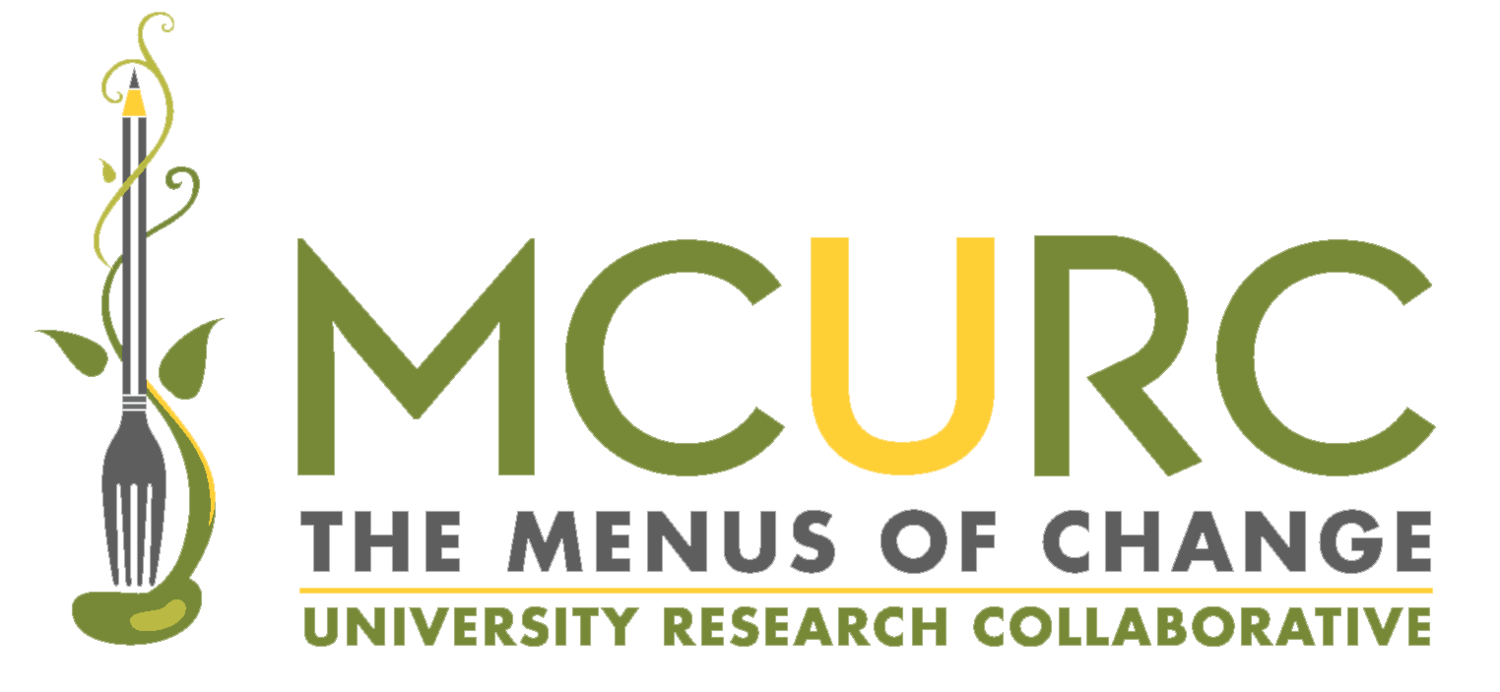
Research
The MCURC works to leverage the power and breadth of a groundbreaking research model, that enables us to understand everything from the most effective ways to reduce food waste, to the power of flavor-focused menu language to increase vegetable consumption. Our goal is to share those insights broadly, so that not only campus dining, but also foodservice leaders from a variety of sectors, can effectively transform the food system.
Our research agenda is built on:
A unique collaboration between faculty experts and dining operators in universities from all over the country and beyond.
Dining halls as living laboratories—dynamic learning environments where applied research is bridged with operational innovation, allowing experimental science to bring far more advanced results in terms of applicability in the real world, compared with traditional academic research.
Potential impact that goes beyond the university food system: College and university students are tomorrow's leaders, parents, consumers, and citizens, and being able to shift this population's beliefs and behaviors is one of the most promising strategies for building a healthy, sustainable food system for the future.
The study of food—whether focused on the related areas of agriculture, the environment, medicine and public health/nutrition, food science, hospitality, business, psychology, anthropology, history, political science, or law—is often siloed within academia. Furthermore, not all of these disciplines or programs are engaged with the culinary and business leadership of university foodservice. Food studies and food science programs that are emerging across the U.S. have started to chip away at these silos. The MCURC supports university efforts to develop food studies that are truly comprehensive, thoroughly reflected in the food choices, menu development strategies, and procurement guidelines of their respective foodservice operations.

The MCURC’s research projects use campus dining halls as living laboratories to measure the impact of food choice architecture and behavioral science interventions on students’ food choices and on the sustainability of dining operations, to support the implementation of the Menus of Change Principles:
Plant-forward diets: Transform protein menu concepts, including the Protein Flip, and elevating plant-based protein.
Food waste reduction: Most effectively produce, promote, and upcycle food to reduce waste.
Reduced Portion Size: Emphasize quality over quantity and rethink the food experience.
Food Literacy: Evaluate how education can induce healthier and more sustainable food choices.
The MCURC has pioneered an entirely new model of behavioral research, which is:
Interdisciplinary by definition.
Characterized by a dual approach using operational research processes that are inspired by the design thinking ethos of rapid prototyping, immediate feedback, and iteration, and aimed to enhance dining operations and services through program and process evaluation; in parallel with long-term, gold-standard academic research aimed at publication in peer-reviewed journals.
Continuously evaluated based on impact and feasibility in campus dining environments.





